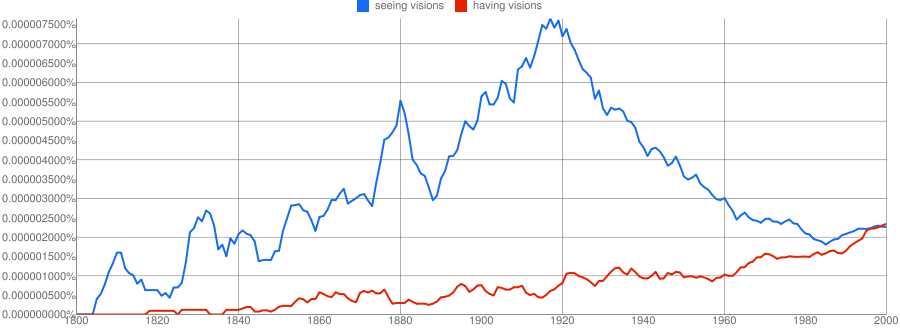I think this is more a question of semantics, so the answer should come from examining the exact meanings of the words.
If you look at dictionary entry for vision it lists
something seen in a dream, trance, or ecstasy
So to ask 'Why am I seeing these (somethings seen in a dream, trance, or ecstasy)?' seems perfectly fine.
From this definition it is actually harder to justify the use of 'having a vision'.
From the pocket oxford's definition
an experience of seeing someone or something in a dream or trance, or as a supernatural apparition
Maybe the implication that the word denotes the 'experience' was more important before. Etymology does not really help as the experince is not emphasized there, on the contrary we get to L. visionem which is "act of seeing, sight, thing seen".
Also of note, if you compare ngrams for Br.E. and Am.E. you'll see that just recently 'having visions' became more popular.

